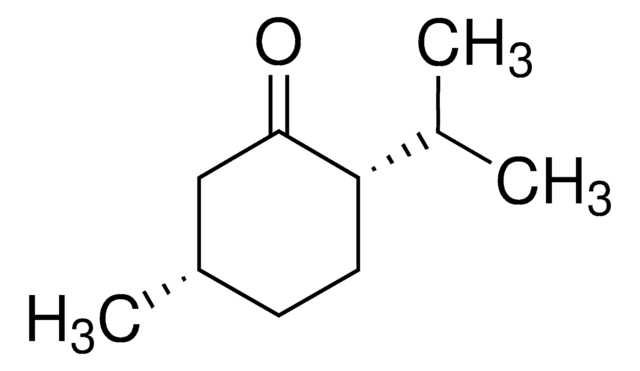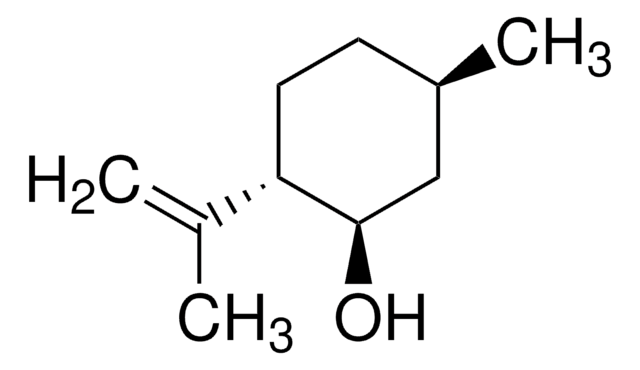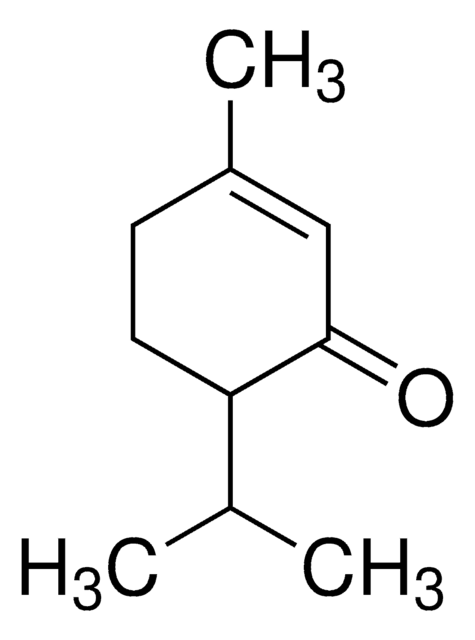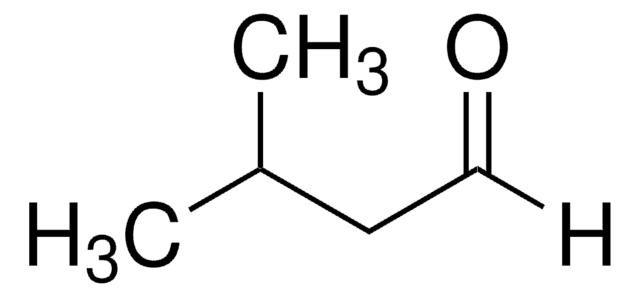W323500
4,5,6,7-Tetrahydro-3,6-dimethylbenzofuran
≥95%
Synonym(s):
Menthofuran
About This Item
Recommended Products
biological source
synthetic
grade
Halal
reg. compliance
FDA 21 CFR 117
Assay
≥95%
optical activity
[α]25/D +90°, c = 10 in methanol
refractive index
n20/D 1.485 (lit.)
bp
80-82 °C/13 mmHg (lit.)
density
0.97 g/mL at 25 °C (lit.)
application(s)
flavors and fragrances
Documentation
see Safety & Documentation for available documents
food allergen
no known allergens
Organoleptic
coffee; musty; earthy; pungent; nutty
storage temp.
2-8°C
SMILES string
CC1CCc2c(C)coc2C1
InChI
1S/C10H14O/c1-7-3-4-9-8(2)6-11-10(9)5-7/h6-7H,3-5H2,1-2H3
InChI key
YGWKXXYGDYYFJU-UHFFFAOYSA-N
General description
Storage Class Code
13 - Non Combustible Solids
WGK
WGK 2
Flash Point(F)
168.8 °F - closed cup
Flash Point(C)
76 °C - closed cup
Personal Protective Equipment
Choose from one of the most recent versions:
Already Own This Product?
Find documentation for the products that you have recently purchased in the Document Library.
Our team of scientists has experience in all areas of research including Life Science, Material Science, Chemical Synthesis, Chromatography, Analytical and many others.
Contact Technical Service






